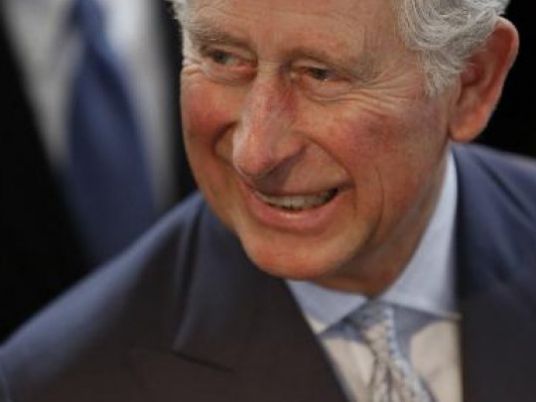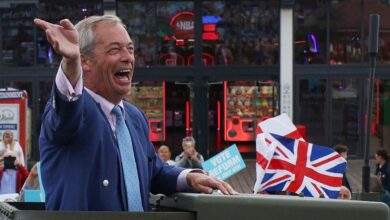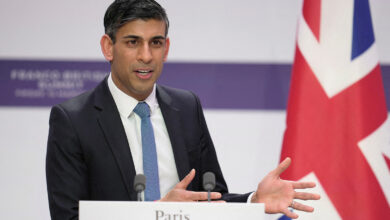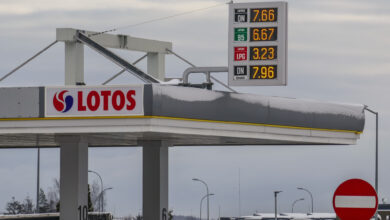
Prince Charles was set to become the first British royal to meet Irish republican leader Gerry Adams on Tuesday on a historic trip to the place where his great-uncle was killed by an IRA bomb.
In a statement issued ahead of the visit, Adams referred to Charles using his title as colonel-in-chief of the Parachute Regiment of the British Army, which he said was responsible for a number of deaths during the Northern Ireland conflict known as "The Troubles."
"But he (Charles) also has been bereaved by the actions of republicans," said Adams, the veteran leader of the Sinn Fein party, which was the political wing of the Irish Republican Army (IRA).
"Thankfully the conflict is over. But there remains unresolved injustices. These must be rectified and a healing process developed," he said.
"There is a responsibility on us all to promote reconciliation and seek to promote healing," he added.
The IRA blew up a boat carrying Charles' godfather and great-uncle Lord Mountbatten off the west coast of Ireland in 1979, in one of the most high-profile assassinations during three decades of sectarian unrest that killed 3,500 people.
The 79-year-old royal was killed along with two relatives and Paul Maxwell, a 14-year-old local boy, who worked on the fishing boat.
Charles was expected to travel on Wednesday to the rugged stretch of coastline near where the killing took place in Mullaghmore, becoming the first royal to do so on a visit that palace aides have said is aimed at promoting "peace and reconciliation".
The heir to the throne had a close relationship with his godfather and the visit, which will include a religious service in a nearby church, will be an emotional one for him.
Mountbatten's grandson, Timothy Knatchbull, who survived the blast, is also expected to attend, along with Peter McHugh, a local resident who helped pull bodies from the sea, British media reported.
Adams and other senior Sinn Fein members boycotted Queen Elizabeth II's visit to Ireland in 2011, the first by a British monarch since the future Republic of Ireland gained independence from Britain in 1922.
But Northern Ireland's Deputy First Minister Martin McGuinness, a member of Sinn Fein who was an IRA commander in the 1970s, later shook hands with the queen during her visit to Belfast in 2012.
Irish Foreign Minister Charlie Flanagan said this week's visit would celebrate Irish-British ties "while also acknowledging more difficult moments from the past".
"Reconciliation and dealing with the past are issues that can still challenge us," he added.
Mary Harris, senior lecturer in modern Irish history at the National University of Ireland in Galway and an expert on the Northern Ireland conflict, called the visit "momentous."
Tight security
A major security operation was in place for Charles' visit, days after Irish police found guns and explosive materials in a series of raids and quizzed a number of men, including a top dissident republican.
Protests are expected during the tour, which also occurred during the queen's 2011 trip. A small number of demonstrators gathered in Galway on Tuesday morning, Irish broadcaster RTE reported.
On Tuesday, Prince Charles will also meet with Prime Minister Enda Kenny and attend a private dinner with President Michael Higgins.
On Wednesday, the Prince of Wales and his wife Camilla, Duchess of Cornwall, will visit the grave of Nobel prize-winning poet William Butler Yeats to mark the 150th anniversary of his birth.
They will then travel to Northern Ireland for further engagements on Thursday and Friday.
This is Charles's third visit to Ireland. In 1995, he became the first member of the royal family to visit the country since independence. He also visited in 2002.




